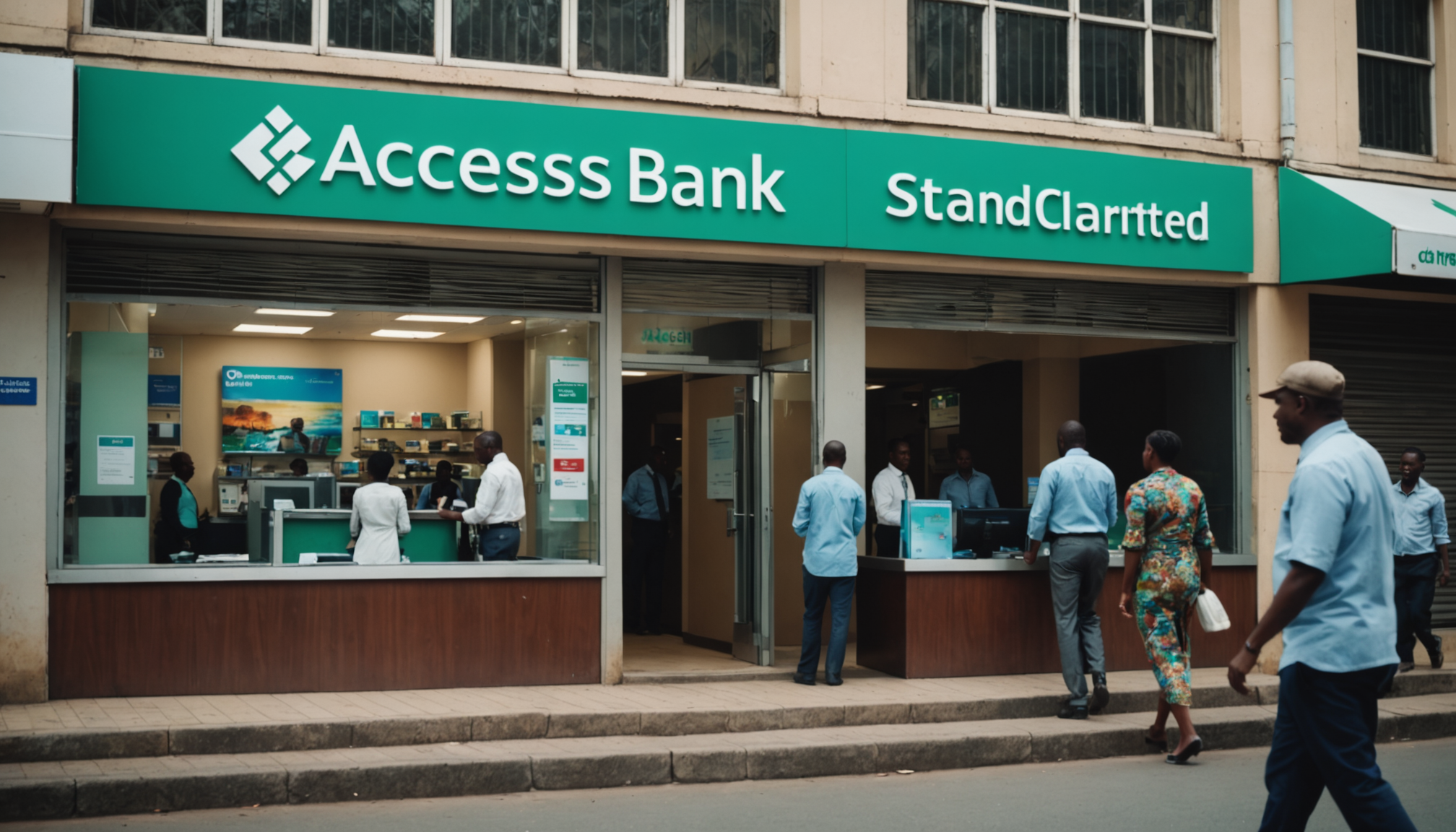
Acquisition of Standard Chartered Bank’s Retail and Wealth Management Operations in Tanzania by Access Bank PLC
Overview of the Transaction
On June 20, 2025, Nigerian financial institution Access Bank PLC successfully completed the acquisition of Standard Chartered Bank’s retail banking and wealth management operations in Tanzania. This acquisition is a significant milestone in Access Bank’s expansion strategy within the African financial sector.
Context and Strategic Repositioning
The transaction is part of Standard Chartered Bank’s broader strategic repositioning, initiated in 2022, which involves exiting non-priority markets to focus on core areas. This divestiture aligns with the bank’s global strategy to optimize its portfolio and enhance operational efficiency.
Alignment with Sustainable Development Goals (SDGs)
Promoting Economic Growth and Decent Work (SDG 8)
- Access Bank’s expansion into Tanzania supports inclusive economic growth by increasing access to retail banking and wealth management services.
- The acquisition is expected to create new employment opportunities within the Tanzanian banking sector, contributing to decent work and economic development.
Fostering Industry, Innovation, and Infrastructure (SDG 9)
- The integration of Standard Chartered’s operations will enhance financial infrastructure in Tanzania.
- Access Bank’s investment is likely to promote innovation in banking services, improving financial inclusion.
Reducing Inequalities (SDG 10)
- By expanding retail banking services, Access Bank contributes to reducing inequalities in financial access among different population segments in Tanzania.
Strengthening Partnerships for the Goals (SDG 17)
- The acquisition exemplifies cross-border collaboration between Nigerian and Tanzanian financial institutions, fostering regional economic integration.
Implications and Future Outlook
- Market Expansion: Access Bank’s entry into the Tanzanian market is expected to enhance competition and service quality in the banking sector.
- Customer Benefits: Customers will gain access to a broader range of financial products and wealth management solutions.
- Contribution to Sustainable Development: The acquisition supports multiple SDGs by promoting economic growth, innovation, and reduced inequalities.
Overall, this strategic acquisition not only strengthens Access Bank’s presence in East Africa but also contributes positively to the Sustainable Development Goals, fostering economic and social progress in the region.
1. Sustainable Development Goals (SDGs) Addressed or Connected
- SDG 8: Decent Work and Economic Growth
- The acquisition relates to economic activities and financial sector growth, impacting employment and economic development.
- SDG 9: Industry, Innovation, and Infrastructure
- The transaction involves banking infrastructure and financial services innovation.
- SDG 10: Reduced Inequalities
- Access Bank’s expansion in Tanzania could promote financial inclusion and reduce inequalities in access to banking services.
- SDG 17: Partnerships for the Goals
- The acquisition reflects international partnerships and cooperation in the financial sector.
2. Specific Targets Under the Identified SDGs
- SDG 8: Decent Work and Economic Growth
- Target 8.3: Promote development-oriented policies that support productive activities, decent job creation, entrepreneurship, creativity and innovation.
- SDG 9: Industry, Innovation, and Infrastructure
- Target 9.3: Increase the access of small-scale industrial and other enterprises, in particular in developing countries, to financial services, including affordable credit.
- SDG 10: Reduced Inequalities
- Target 10.2: Empower and promote the social, economic and political inclusion of all, irrespective of age, sex, disability, race, ethnicity, origin, religion or economic or other status.
- SDG 17: Partnerships for the Goals
- Target 17.16: Enhance the Global Partnership for Sustainable Development, complemented by multi-stakeholder partnerships that mobilize and share knowledge, expertise, technology and financial resources.
3. Indicators Mentioned or Implied to Measure Progress
- SDG 8 Indicators
- Indicator 8.3.1: Proportion of informal employment in non-agriculture employment, by sex.
- Indicator 8.5.2: Unemployment rate, by sex, age and persons with disabilities.
- SDG 9 Indicators
- Indicator 9.3.1: Proportion of small-scale industries in total industry value added.
- Indicator 9.3.2: Proportion of small-scale industries with a loan or line of credit.
- SDG 10 Indicators
- Indicator 10.2.1: Proportion of people living below 50 per cent of median income, by age, sex and persons with disabilities.
- Indicator 10.2.2: Proportion of people living below the national poverty line, by age, sex and persons with disabilities.
- SDG 17 Indicators
- Indicator 17.16.1: Number of countries reporting progress in multi-stakeholder development effectiveness monitoring frameworks that support the achievement of the sustainable development goals.
4. Table of SDGs, Targets, and Indicators
| SDGs | Targets | Indicators |
|---|---|---|
| SDG 8: Decent Work and Economic Growth | 8.3: Promote development-oriented policies that support productive activities, decent job creation, entrepreneurship, creativity and innovation. | 8.3.1: Proportion of informal employment in non-agriculture employment, by sex. 8.5.2: Unemployment rate, by sex, age and persons with disabilities. |
| SDG 9: Industry, Innovation, and Infrastructure | 9.3: Increase access of small-scale industries to financial services, including affordable credit. | 9.3.1: Proportion of small-scale industries in total industry value added. 9.3.2: Proportion of small-scale industries with a loan or line of credit. |
| SDG 10: Reduced Inequalities | 10.2: Empower and promote social, economic and political inclusion of all. | 10.2.1: Proportion of people living below 50% of median income, by age, sex and disability. 10.2.2: Proportion of people living below the national poverty line, by age, sex and disability. |
| SDG 17: Partnerships for the Goals | 17.16: Enhance global partnerships for sustainable development. | 17.16.1: Number of countries reporting progress in multi-stakeholder development effectiveness monitoring frameworks. |
Source: financialafrik.com






